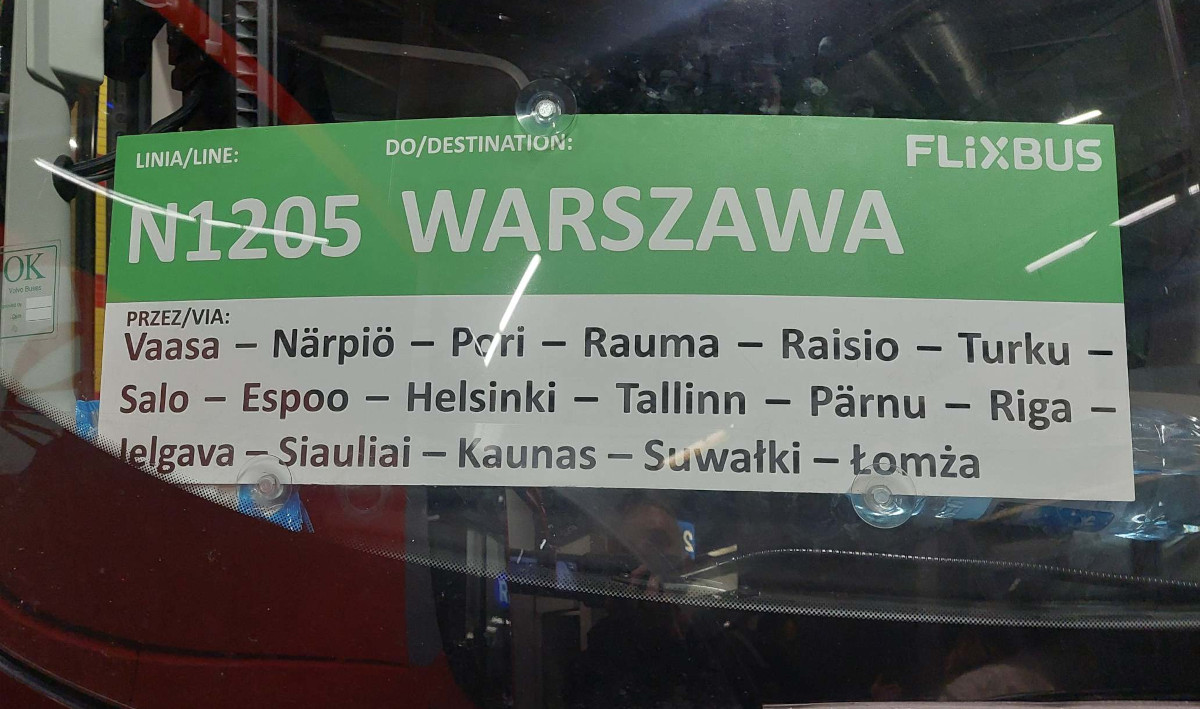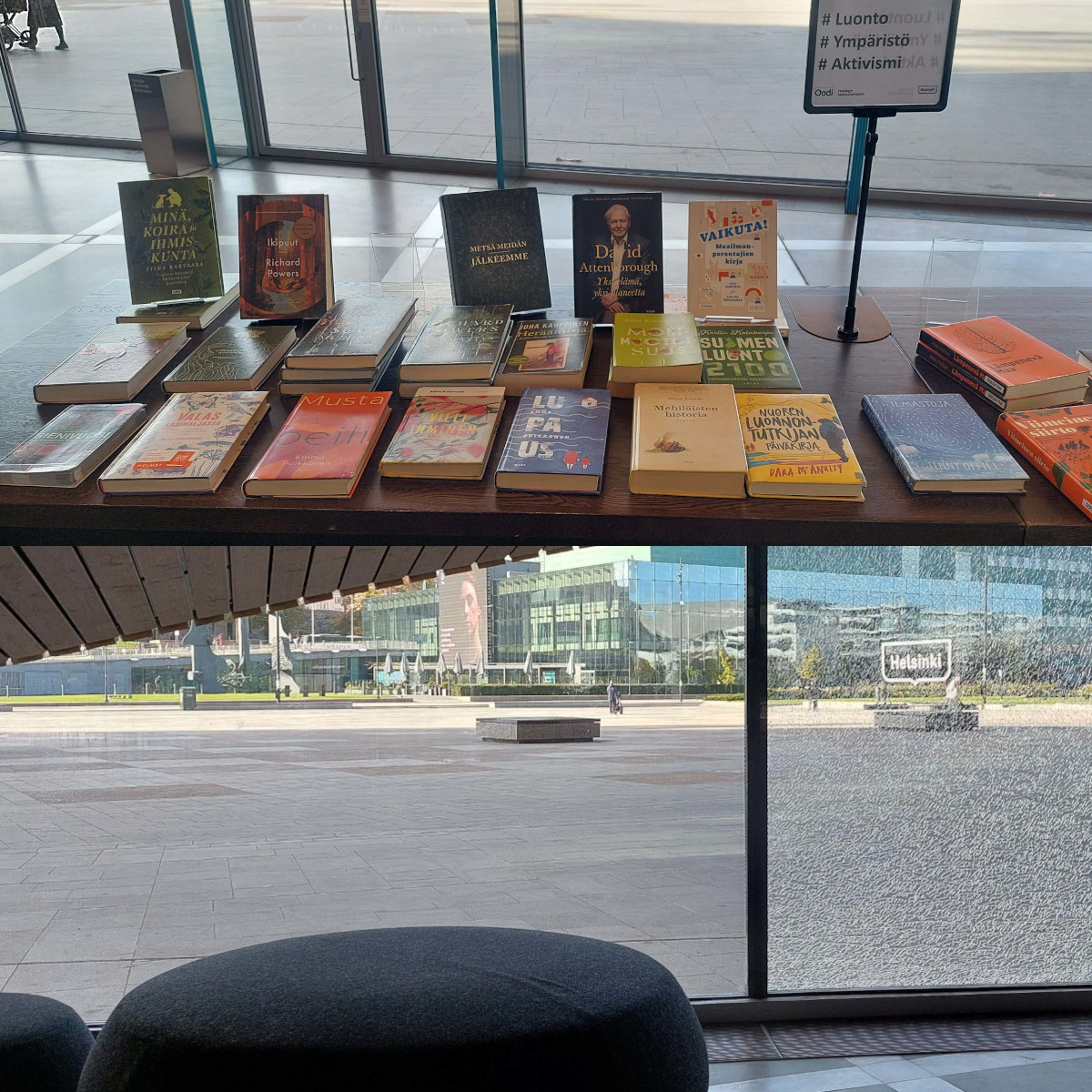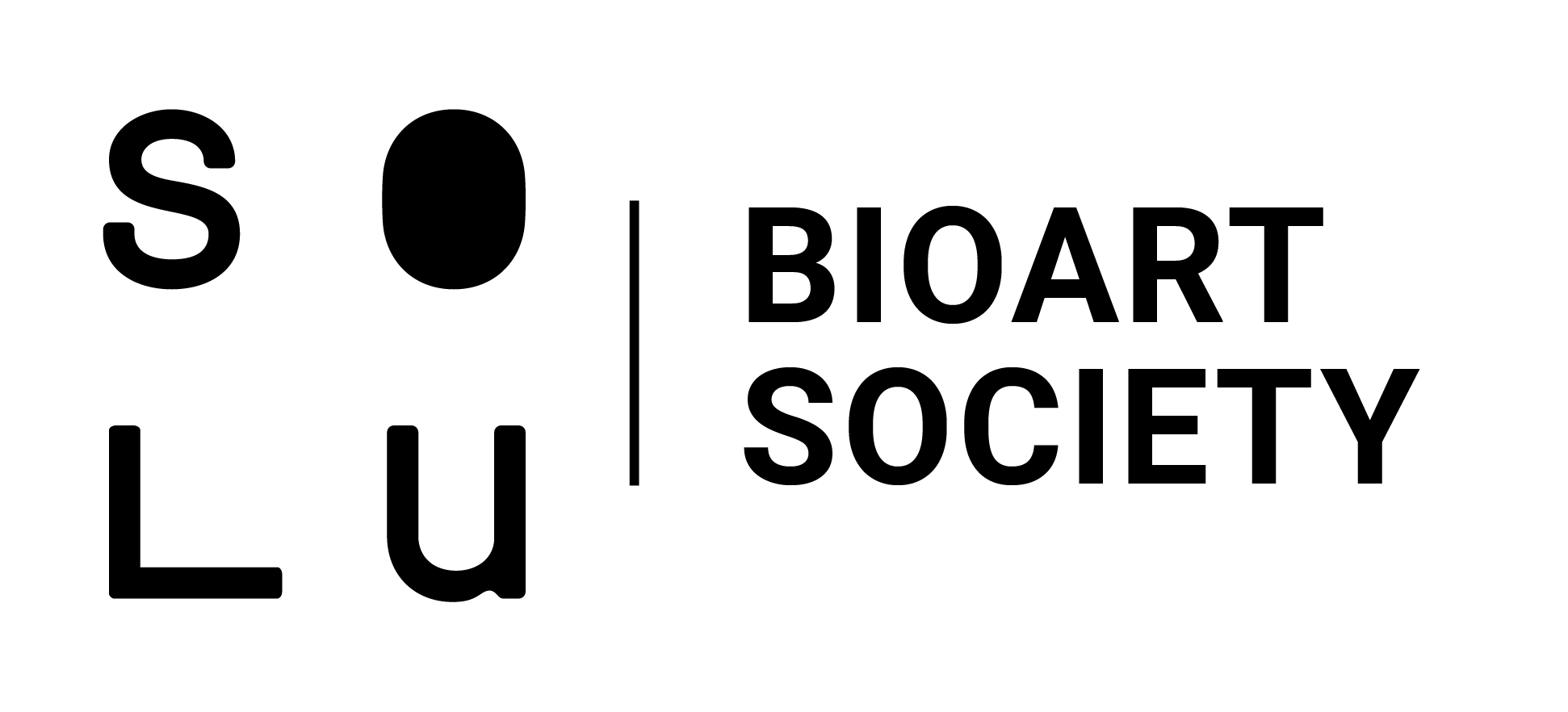Andrew Gryf Paterson was selected as one of the Rewilding Cultures Mobility Conversation grant receivers in spring 2023. They are travelling from Finland to Montenegro, exploring potential future routes of human climate migration in reverse. During their travel, Paterson will keep a travel diary on the Bioart Society website. This is the first blog entry.
Departing from Helsinki [Written 9-11 October 2023]

09.10.2023: The new Flixbus N1205 service from Vaasa to Warszawa, which includes the Tallink ferry across the Gulf of Finland.
Serbia hosted Scotland at football on the 8th October 2020 for a crucial game allowing UEFA European Championship qualification, and I reached out an Serb friend in diaspora of Helsinki, and another of Belgrade. Vladan wrote, “Greta says we don't need hope we need action!” I retorted, “Have you ever followed Scottish football? [wink emoji]” “-Andrius [at that time my FB name was in Lithuanian], I do not say action is possible without hope”. And then I pinged in Vladimir to the chat, who I knew would be watching the football. We wrote of a Celtic brotherhood that is at least 1000 years old, that we, as Vladimir wrote, would “WIN TOGETHER DESPITE the Euro”.
The Scoto-slavic bonhomerie among us spread by this football moment, in the spirit of trans-cultural, post-nationalist times hides another stories which were more or less ours also: Inter/Intra-national conflict, experience of dispersed geography, and divisive national politics, rising intolerance of foreigners, migrants and those in marginal economic circumstances. Greta [Thunberg] had been raising awareness of environmental and climate crisis on a global platform with other young activists. At the time, Finland and Serbia was supposedly managing COVID-19 pandemic pretty well in comparison to other places in Europe, and European conflict was restricted to Donbass area in East Ukraine. Far-right nationalism was not far away in any of our contexts. Many of the Syrian refugees who came to the European Union from 2015 onwards as a result of their civil war had largely been integrated, at least in Germany, but not so well elsewhere. Mass migration is a hot and controversial topic that is rarely spoken about progressively. It was an activist topic. I knew personally this. At that moment, it was 1 year since I met a Nigerian asylum-seeker in the streets of Punavuori, Helsinki, October 2019. I was 1 year into a now 4 year process of committing to a personalised support and hospitality effort, offering help and hospitality, where I could, when they needed it.
The span of time and space across borders, cultures, languages familiar and not so, with that thick landmass of Eastern Europe as a geographical area to traverse is one I know about. I have been using inter-city and long-distance coach bus services for almost three decades. Furthermore, since 2007, I have been imagining a lived, experienced body of knowledge called migrant epistemologies (what migrants may know by being an migrant). This concept was introduced to me at the Summit gathering of non-aligned initiatives in education culture, with cultural workers and activists in Berlin that year, Spring 2007, with Joanne Richardson & Charles Heller’s activist documentary films featuring migrants, and refugees from Sub-Saharan Africa crossing the Mediterranean Sea to Europe. I schemed for a year or so afterwards the idea of solidarity-based travel route of cultural organisations to visit from Finland down the Baltics, to the Eastern Balkans, destination Turkey. Down the +3 UTC time-zone. As if it was possible to produce a cultural caravanserai, that would strengthen networks and capacities among us.[1][2]
Then, almost a decade later, in February 2017, I came across a global map illustration which purported to predict the agricultural and population changes on the planet with 4 degrees Celsius above pre-Industrial levels. Desertification of agricultural and grasslands of the global tropics and sub-tropical latitudes would spread even to the lower half of European soils. As an academic paper by Betts et al. (2011) introduced, upon which the map was based, this scenario is plausible, likely by 2060, if we as a global civilisation stay on the “fossil intensive” route.[3] Mass climate migration are being modelled also on these circumstances.[4]
The map indicated that large areas of Earth would be arid or uninhabitable, which is also where several billion humans currently live, and that a huge mass of people, as well as sustainable would likely move northwards to cooler habitable climate, such as the territory of current day Canada, Greenland, Russia, Scandinavia, Finland. Once the permafrost has melted, and ground settled, new high-rise cities in the arctic and sub-arctic area was predicted. This startling and grim premonition has been stuck in my head ever since, with the conception that those of us concerned about climate change and related crisis, need to consider the social dimensions of such a scenario, how a society, such as Finland (or Sweden, Norway, Canada, Russia)’s may prepare, manage, host or integrate this plausible scenario into the next generations of residents, citizens, planning professionals, and so on. How might we be hospitable, rather than protective and/or defensive?

08.10.2020: “The social media version of the privatization of hope at tea-time.. / or supporting Scottish Football team / or for love's sake / with bibliographic reference & a bunch of charms: Thompson, P. & Žižek, S. (2013). The privatization of hope: Ernst Bloch and the future of utopia. Durham, NC: Duke University Press.”
With these thoughts in mind, I travel now in October 2023, during what is predicted to be the warmest recorded year in human history, and at the time of full-scale war again in the European continent. I go by one of the proposed sustainable, cheapest and most direct route, slow travelling, but in reverse, from North to South. Leaves are falling in Helsinki after the first frost finally, and I head towards 25 degrees Celsius in Montenegro.
I am on the road to Belgrade, finally, from Helsinki via Tallinn, Rīga, Vilnius, Warszawa, and an early morning stop over in Budapest. After Belgrade, I make plans for visiting Novi Sad, Frušta Gora nearby, and then several locations in Montenegro, including the capital Podgorica, but also likely Bar and Tivat. I may be like a migrating bird, shifting to southern latitudes at the turn of autumn towards winter, but I am curious to notice the smoothness of travel southwards: That it will not likely be so for other humans with ambitions to travel north in the future.
I have been an economic migrant before, leaving my post-industrial, small-town homelands of Central Scotland several times to more opportune-laden locations. I have migrated both South and North, as well as Nordic, and Baltic. Despite living on below average income, at a basic poverty level in Finland, these days I leave behind a reasonably comfortable living and working situation, while if not luxurious, covers my basic needs. I am surrounded by a rich cultural, academic and knowledge based society, which on-paper cares for our so-called nature, ecology and ecosystems, that we live in, but it is not clear if the same consideration is made for the immigrant, the new-comer who wishes to settle within this northern environment.

09.10.2023: Home bedroom in Helsinki.
The symbioscene that Glenn Albrecht writes about is an aspirational one, in which we wish to live and learn in symbiosis with our surrounding habitat, to take our place within the ecosystem that we live in, consciously, and with an understanding of our affect. Can we imagine our fellow humans with us? Can we ‘win together’, despite the euro-fortress that is being built up around our south-eastern borderlands, along the coast lines of the European Mediterranean sea? Despite the disinformation and malicious ‘othering’ campaigns against migrants, refugees and asylum-seekers—those who are seeking to survive conflict—oppressive authoritarian regimes, agricultural failure, flooding, drought, extreme weather events, climate heating, earthquakes, biodiversity loss, or insect-based crisis.
I believe that we only can learn about such complicated subjects, environments and matters by going to do fieldwork, mobilities, to make an adventure out of it. To leave the comfort zones, and academically clean spaces. In transit will be a practice-led researcher, with ambition to learn about climate migration, displacement and settlement, by slow travelling and staying with mostly in-kind hosts on route, appreciating their hospitality, and it’s necessity to make the journey bearable.
Gaia Vince, who in her 2022 book Nomad century: How climate migration will re-shape our world takes the 4 degrees Celsius premonition very seriously. Vince argues that migration and cooperation, following Peter Kropotkin’s famous 1902 rebute of Darwinism in Mutual Aid, are—have forever been, and will continue to be—the foundations of human survival.[5][6] I wholeheartedly travel with this hope. This book will be one of my key readings, actually audio-book listening, on this mobility conversation as I go. Additionally, I hope to gather other references and readings. I have what I can carry, including Glenn Albrecht’s Earth emotions: New words for a new world (2019), and Bruno Latour’s Down to Earth: Politics in the new climate regime (2019).[7][8]

09.10.2023: #Luonto #Ympäristö #Aktivismi (#Nature #Environment #Activism) themed library books to loan at Keskustakirjasto (Central Library) Oodi, Helsinki.

09.10.2023: “What don’t we see even though we should”, “Täällä taistellaan [__]soikeusksusta” banners at Aalto University School of Arts, Design & Architecture, Väre building lobby in Otaniemi, Espoo.
The florescent green franchise brand of Flixbus has, in sub-contracting many local passenger coach companies along the way, finally spread from Central Europe to Finland.[9] There is also celebration within the German-based company Flix, in sub-contracting the Lithuanian bus company Ollex, in partnership with Tallink, have finally connected Finland to the rest of it’s vast transport network, being last European continental country outwith it’s franchise.[10] According to company research, with collected data about passengers from the first month of service, only 35% of the travellers were going on the bus outside Finland, with Estonia and Poland being the most popular destinations.[11] The mobility of passengers, in the content of fluid mobility, capital and humans across borders within Schengen is a priority. Ukraine, and the Ukrainian diaspora, now in refuge from the Russian-Ukrainian war is clearly in the background of this new travel context linking the Ostrobotnian coast line, Turku, Helsinki, with the Baltic States and an important transit hub within the network of Polish transit hubs for Ukrainians.
This new bus service that caught my attention already in Kamppi Bus Station, with it’s notified arrival time with destination ‘Varsova’ (Warszawa in Finnish), but not departure mentioned. To see Polish and Ukrainian language signage on the bus in Finland. Even more so, within 10 minutes of leaving, the journey is paused for several hours as we are let off the bus at Länsiterminaali (West Terminal) to check in and board the ferry, on foot with our hand-luggage only. It is like a ‘lay-over’ at sea. Departing Helsinki directly south, and north, regularly involves crossing the Gulf of Finland to Tallinn, alongside other migrants, tourists, passengers, workers, and trans-national consumers. Most likely there are also those are in exile, refuge, and displaced. My imaginary ‘caravanserai’ includes them also. As I move southwards, I hope to imagine countless future journies north to safety. Together we follow the Baltic Way of forests, business bus passengers, and logistics container trucks, arriving at midnight in Rīga. A familiar passage with sleeping stop-overs in Rīga, Vilnius.

09.10.2023: Departing and arriving time-tables at Kamppi Bus Station, Helsinki. The departing bus to Varsova [Warszawa] is actually arriving [from Vaasa-Turku] at 14:50. Other than the coach to Pietari [St. Petersburg], the coach to Varsova is the only other international departure from Helsinki.
Another bus company called LuxExpress, expresses the reality of my travel: A privilege. My network of support on route is cultural venues, academic institution, personal or professional connections, family and friends. These are social resources that most of the majority of climate refugees, predicted by scientists and authors such as Gaia Vince, will not have access to. I have learned that the national border control & migration systems that are awaiting them, as I learned from my solidarity support for the Nigerian asylum-seeking friend, and witnessing their interactions in Finland at least, is tough. While it may be fair, it is not hospitable, and little opportunity is made for fostering hospitality in locals who are already there, those who may help intergrate as activists, residents or citizens.
So dear readers, this upcoming weekend, mid October, I will depart Warszawa. Travelling further south through Central Eastern Europe via Budapest, after crossing the Schengen, European Union and NATO hard borders, 22 hours later, I will arrive in Serbia, to Belgrade and Novi Sad. I will write the next post from there.
Soon after I will rely on the hospitality and networks of my local contacts, including Sergey Dmitriev, the nomadic Russian eco-commune researcher whom I travel all this distance to meet. It is there and among this company, I hope to learn much more of what I wish to learn: What it means to be displaced. To be nomadic. How to adapt. How to settle. How to acclimatise within the context of conflict and ecological crisis. How to re-orientate and make sustainable lives and homes for the future generations ahead.
Hopefully it is only the start of the journey and it is an adventure shared.

09.10.2023: The Flixbus journey includes the ferry travel with Tallink.
REFERENCES
[1] Caravanserai is the Persian name, later adapted into Turkic and Arabic languages within Ottoman Empire, based on the compound words meaning caravan and palace, given to nomad’s stopping place or safe haven along a trading route, such as the historical Silk Road. For initial reference, see: https://en.wikipedia.org/wiki/Caravanserai
[2] I was also inspired by the historical ‘Underground Railroad’ which was secret routes, safe-houses & solidarity activist network in the early and mid 19th Century supporting enslaved African-Americans who were escaping the Southern States, predominately (but not only) to the Northern States of United States and or Canada. For initial reference, see: https://en.wikipedia.org/wiki/Underground_Railroad
[3] Betts, A. et al. (2011). When could global warming reach 4◦C? Phil. Trans. R. Soc. A (2011) 369, 67–84. doi:10.1098/rsta.2010.0292
[4] Gemenne, F. (2011). Climate-induced population displacements in a 4◦C+ world. Phil. Trans. R. Soc. A (2011) 369, 182–195. doi:10.1098/rsta.2010.0287
[5] Vince, G. (2022). Nomad century: How climate migration will reshape our world. London, England: Allen Lane, Penguin Books Ltd.
[6] Kropotkin, P. (1902). Mutual aid: A factor of evolution. Reprinted with illustrations by N. O. Bonzo, as Kropotkin, P. (2021). Mutual aid: An illuminated factor of evolution. Binghampton, NY: PM Press.
[7] Albrecht, G. A. (2019). Earth emotions: New words for a new world. Ithaca and London, NY and England: Cornell University Press.
[8] Latour, B. (2019). Down to earth. Politics in the new climatic regime. Cambridge, England: Polity.
[9] YLE. (July 18, 2023). German bus firm Flixbus opens new Vaasa to Warsaw route. YLE English language news. Accessible from https://yle.fi/a/74-20041541
[10] Intelligent Transport. (July 25, 2023). FlixBus launches first connections to Finland. Intelligent Transport news. Accessible from https://www.intelligenttransport.com/transport-news/148549/flixbus-launches-first-connections-to-finland/
[11] Kuivasmäki, U. (September 21, 2023). Vaasa-Varsova bussireitti on ollut suosittu – Flixbus avamaassa uusia reittejä Suomessa. YLE Suomenkielen Uuutiset: Matkailu. Accessible from https://yle.fi/a/74-20051318






